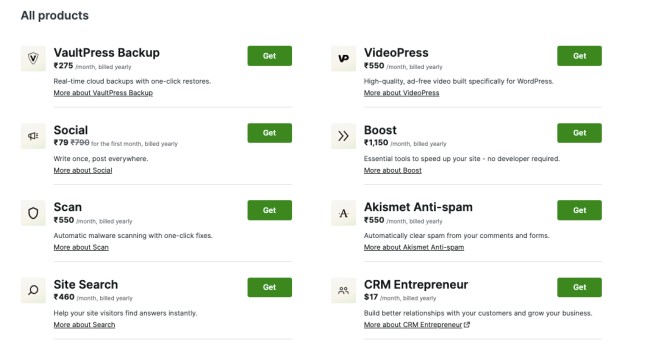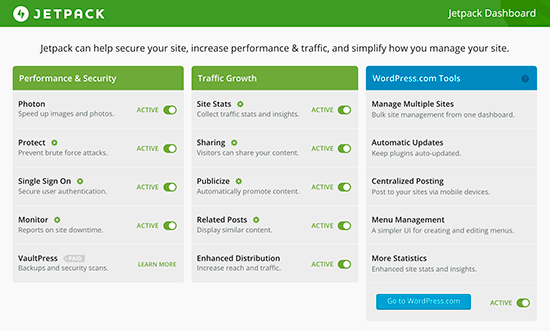Who doesn’t want a fully functional and feature-loaded website? That’s one of the top reasons why webmasters want to install the Jetpack plugin to turbocharge their WordPress website.
It’s got plenty of great features and functions to improve your site.
But there’s a myth floating around, one that claims – that Jetpack makes the site perform slower. Chances are, you already heard about it.
In fact, there are a few website owners complaining about how Jetpack made their site load much slower and even crash!
In this article, we will take a closer look at this issue, whether JetPack will slow down your site or not, and also answer a number of commonly asked questions in this regard. Interested?
Read on!
Should You Install Jetpack on Your WordPress Website?
The truth is – there’s no definitive answer to this question. It all depends on so many factors. Factors like how many plugins are currently active on your website, what’s the current average page load speed, do you need all the features that Jetpack offers, etc.?
And if you install it, do you really need to activate all the functions it offers, or maybe just some of them are enough?
But first, let’s first deal with the myth we have all heard…that JetPack slows down your website…
Does Jetpack Slow Down WordPress Website?
Needless to say, WordPress is a mighty and flexible content management system which is perhaps a good match for your website.
Do you know what makes it so flexible and reliable? It’s not jam-packed with a ton of features that you may never even use on your website.
And that’s why we have so many additional plugins so that we can easily add the features we want, as per our requirements. Of course, you simply install it like any other plugin.

But the moment you activate it on your website, you will notice that you now have instant access to plenty of other cool features that you can use on your website.
Having said this, Jetpack won’t automatically, by itself, slow down your site. In fact, the code is pretty clean. Plus, you can control which of the features you want to activate.
This means if some feature of this plugin isn’t activated, then that piece of code won’t be running in the background and bogging down your website.
You can Control Everything on JetPack
All the heavy “weight” and process load of the Jetpack plugin is entirely under your control. You get to decide how much of this plugin’s features you want to have on your website.
If you are not using a bunch of heavy plugins and features on your website, chances are that your website will perform just as well.

However, if you do activate a large number of unwanted plugins and their performance-demanding features, it’s bound to negatively affect the performance of your website, regardless of whether it’s specifically caused by the Jetpack plugin or not.
So, if you are concerned about performance, install the least possible number of plugins and use the minimum number of features that you actually need.
So, think again! Check the speed of your internet connection. Does Jetpack slow down WordPress? Maybe it can, just like any other plugin.
If you choose to use all of the available features that come with it, chances are it will increase load time to your website, but nowhere near as serious as many people are making it sound.
There’s No Need to Worry About Site Performance Issues
The developers of this plugin spend a lot more time updating the code, fixing the bugs, and making performance improvements, as compared to many other WordPress plugins out there.
Why worry about performance issues when there’s a big community of developers and webmasters in the Jetpack ecosystem?
Final Thoughts
Once and for all: Jetpack doesn’t slow down your WordPress website! You may or may not like Jetpack, but one thing is for sure – it’s not a bandwidth hog for WordPress, nor does it negatively affect site performance. Considering that for a plugin it packs a lot of power, it’s code is pretty streamlined.
Overall, it’s a good multi-purpose plugin that’s certainly worth a try if you want a feature-rich website.
If you do decide to use it on your WordPress website, make sure you enable only those features that you actually need to use and disable the rest.
Also Read:
